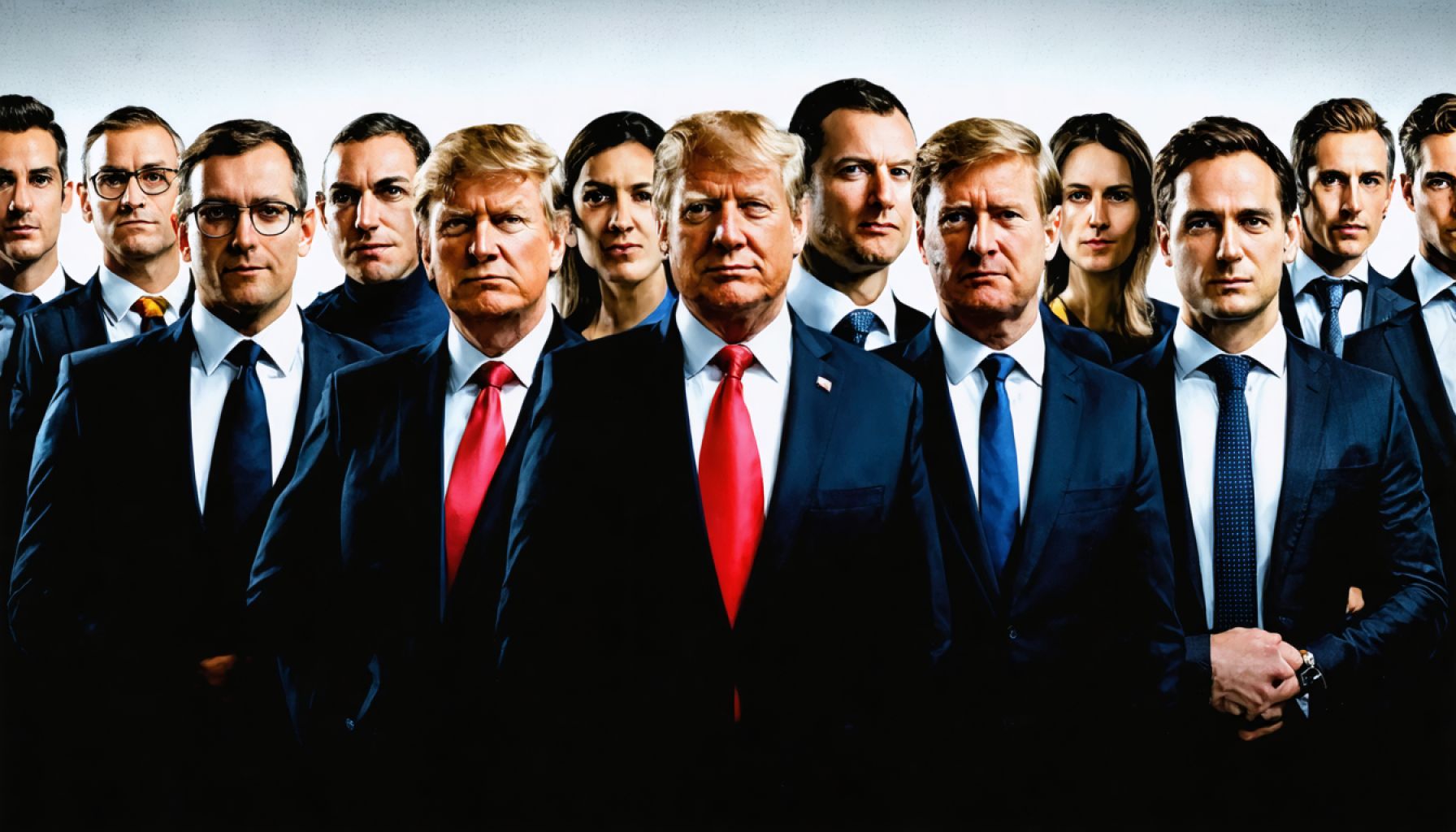- Friedrich Merz is poised to become Germany’s chancellor following the 2025 Bundestag elections, indicating a significant leadership shift.
- Merz is expected to overhaul the cabinet, with intense speculation surrounding key appointments, particularly the Economic Minister role.
- Carsten Linnemann, known for his financial and economic expertise, is a leading candidate for Economic Minister from Merz’s CDU party.
- Jens Spahn, a former Health Minister, expresses interest in transitioning to a role focused on economic, climate, and middle-class issues.
- Alexander Dobrindt remains a strong potential contender, with the CSU backing his seasoned political skills.
- A potential coalition with the Greens could introduce unexpected candidates, despite Merz opposing the reappointment of Robert Habeck.
- Germany anticipates the final decision on economic leadership, which will impact both national and European economic landscapes.
Political winds gust through Germany as initial projections for the 2025 Bundestag elections hail Friedrich Merz as the likely chancellor. The stage is set for a seismic shift in leadership, with Merz positioned not just to assume the chancellorship but also to recalibrate the entire cabinet, sparking intense speculation about appointments, especially for the critical post of Economic Minister.
Against the backdrop of Berlin’s storied avenues and bustling political machinations, whispers grow louder about potential picks from Merz’s CDU camp. Carsten Linnemann, the CDU’s current Secretary General known for his economic credentials—girded by stints at Deutsche Bank and as head of the Mittelstands- und Wirtschaftsunion—is a frontrunner. His deep roots in finance and politics paint a compelling picture for a future Economic Minister’s portrait.
Meanwhile, the ever-ambitious Jens Spahn, having left an indelible mark in his erstwhile role as Health Minister, has made his aspirations clear. His desire for a new challenge within Merz’s government makes him another worthy contender. With a firm grip on economic, climate, and middle-class issues, Spahn is more than ready to exchange his healthcare portfolio for economic stewardship.
Amidst this clamor, Alexander Dobrindt, touted by CSU insiders, remains a formidable force with his seasoned political acumen. Adding another layer of intrigue, the potential coalition with the Greens could bring unexpected names into the fray, despite Merz dismissing Robert Habeck’s reappointment.
As the political fog lifts, Germany awaits with bated breath to see who will steer its economic ship in this new era. The ultimate decision will resonate not only within Germany’s industrial heartland but across Europe’s economic landscape.
Who Will Lead Germany’s Economic Renaissance?
The anticipation surrounding the 2025 Bundestag elections in Germany is palpable, with Friedrich Merz positioned as the likely chancellor. This potential shift in leadership carries profound implications, particularly for Germany’s economic direction. This article delves deeper into key areas that weren’t explored in the original announcement, providing a comprehensive picture of what these changes might mean for Germany and beyond.
Real-World Use Cases and Market Forecasts
Economic Minister’s Role in Shaping Policies
The Economic Minister’s portfolio will be crucial in reinstating Germany as a powerhouse in the European Union. Carsten Linnemann, with his background in finance, could focus on harnessing Germany’s Mittelstand—small to medium-sized enterprises. Linnemann’s policies could prioritize digital transformation within these businesses, fostering innovation.
Environmental and Energy Policies
With Germany’s ongoing commitment to carbon neutrality by 2045, any economic plan must align with environmental goals. If a coalition with the Greens comes to fruition, integrating green energy solutions will likely become a cornerstone of Germany’s economic policies. This could lead to an increased investment in renewable energy projects and innovation in clean technology.
Reviews & Comparisons
Potential Ministers and Their Economic Outlooks
1. Carsten Linnemann: His financial acumen might lead to a conservative fiscal policy, emphasizing tax cuts for the middle class and boosting small businesses. His tenure could streamline regulations to foster entrepreneurship.
2. Jens Spahn: Known for handling complex portfolios, Spahn might adopt a broad approach, integrating economic, health, and social policies. His leadership style leans towards pragmatic solutions that cater to diverse economic stakeholders.
3. Alexander Dobrindt: He could focus on infrastructural development and digitalization, considering his political clout within the CSU and insights into Germany’s industrial demands.
Pros & Cons Overview
Advantages of a CDU-Led Economic Policy
– Enhanced focus on financial stability and market-friendly reforms.
– Potential for stronger ties with business communities, fostering growth and innovation.
Potential Downsides
– Conservative economic policies may not prioritize social welfare enhancements.
– Risk of slow progress on urgent environmental policies without strong Green influence.
Security & Sustainability
Germany’s role as an economic leader in the EU will necessitate policies that ensure not only financial security but also sustainable growth. The new government should aim for a balanced approach, facilitating economic growth while committing to climate change mandates.
Insights & Predictions
Economic policy under Merz, with potential governance from Linnemann or Spahn, could see:
– Increased capital investment in SMEs.
– Further push toward Germany’s digital economy
– Strategic partnerships across EU for enhanced trade agreements.
Actionable Recommendations:
– Businesses: Prepare to adapt to policy changes by investing in digital capabilities.
– Investors: Look into SMEs that align with sustainability goals for promising returns.
– Citizens: Stay informed about policy shifts as they may impact taxation and social services.
For more insights into German politics, you may visit the official site CDU for updates.
The landscape of Germany’s political and economic future is undoubtedly complex, yet the coming months hold promise for transformative leadership that could redefine its position within Europe and globally.
